On 28 July 1951, representatives of 19 nations, including Britain, signed the 1951 Refugee convention. The convention, which has since been signed by 145 countries, defined the term “refugee” as well as their rights and the obligations of nations to protect them, including, crucially, a protection against refoulement – returning people to countries where they face serious threats to life or freedom.
“The Refugee convention isn’t just a piece of paper; it’s one of the most powerful ideals in the world,” says Maurice Wren, chief executive of the Refugee Council, the UK’s leading organisation working with refugees and asylum seekers. “It’s saved millions of lives, some of them right here in Britain.”
Thursday marks 65 years to the day that the convention was signed and, at a time when there are more than 65 million displaced people in the world, the highest number since records began, we look back at the UK’s history of movement, and those who have come to Britain over the decades seeking refuge.
1950s: George Szirtes from Hungary
‘The welcome we received was extraordinary’
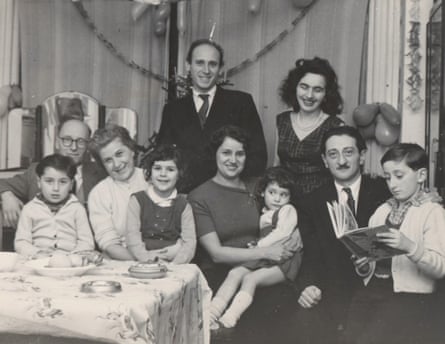
George Szirtes, 67, was seven in 1956 at the time of the Hungarian revolution. His parents were Jews who had suffered badly during the second world war, and left the country fearing an undercurrent of fascism in Hungary.
The welcome, and the assistance they received in setting up a life in England was extraordinary, says Szirtes. “Everything was well set up at this end. We came to London and there were various councils who offered extraordinary help. They helped my parents find a job. My father applied for a grant and they lent us money to raise a mortgage on a house.”
Szirtes thinks he was helped by a general understanding of the political situation in Hungary and sympathy with Hungarian refugees. “This was the cold war and I think the Hungarian nation was much admired for putting up a stand against the Russians. We Hungarians were regarded, to our surprise, as somewhat heroic. One story comes to mind is in a playground: some boys were kicking a ball around and I asked to play and they said: ‘No you can’t.’ I started crying and they said: ‘Sorry, we thought you were Russian, but you’re Hungarian, that’s fine.’”
Soon after arriving in Britain, Szirtes’ parents decided to stay permanently. They learned English and spoke it at home. But there was sadness: Szirtes’ mother killed herself in 1975. There were, says Szirtes, a variety of factors that led to her death, but he thinks one was a sense of cultural displacement. “Everyone was terribly nice, but they had a completely different background. There’s a difficulty forming friendships at depth, which I can imagine is not uncommon among refugees.”
Szirtes went to art school and, at 21, married an artist he met there. They have two children and two grandchildren. Szirtes is an award-winning poet, with several published volumes, and before his retirement he also worked as a translator and creative-writing teacher.
He returns to Hungary regularly and was there last summer as refugees were camped in Keleti railway station in Budapest, desperate to travel to Austria and Germany. “I felt a terrible pity and kind of anger that it should be like this. It wasn’t just the sight of them, it was reading the rhetoric against them. They were being described essentially as hate objects, they were all potential terrorists, they were all potential scroungers, we shouldn’t do anything for them, we should in a sense keep them out.”
1960s: Gillian Slovo from South Africa
‘Becoming a refugee is not a choice’
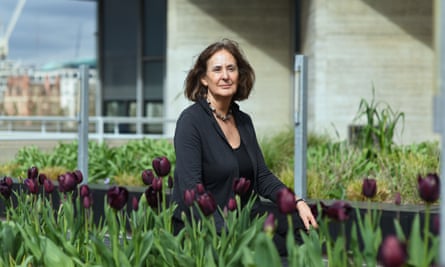
Gillian Slovo’s parents were prominent anti-apartheid campaigners in South Africa. Her father, Joe Slovo, helped Nelson Mandela to found the ANC’s army, and her mother, Ruth First, was a journalist who was blacklisted by the government. Banned from working in her field, First was retraining as a librarian when she was arrested, the police accosting her in the library itself, and imprisoned in solitary detention for 117 days.
When First was released from prison, she packed up her two daughters and mother and travelled to Britain, where her husband had already sought asylum. They arrived on Slovo’s 12th birthday.
“Because my parents were quite well-known anti-apartheid activists, when we arrived at Heathrow, we didn’t have to do what most refugees do, which is declare ourselves,” says Slovo, now 64 and living in London. “The authorities were expecting us. We were taken almost immediately to a TV station and put in front of a television camera.”
Slovo’s first impressions of Britain were “a great disappointment”. She had an image of England formed by Jane Austen and Charles Dickens. “I imagined snow nestling in beautiful houses, yellow lights in the darkness. And, in fact, it was snowing, but it was that half-snow that London can get that melts as soon as it hits. That journey from Heathrow was incredibly grey and dull, I wasn’t used to a sky that is as grey as an English sky is.”
Slovo says she felt incredibly different as a child in Britain.
“I came with an accent that nobody particularly liked and they didn’t know anything about South Africa. I was asked things like: ‘Were there lions and tigers walking around your garden?’, and I’d never seen a lion or tiger. It just felt like I was an alien, it wasn’t that anyone was particularly cruel, it’s just at that age, they notice difference and I was different.”
After school in London, Slovo went to university in Manchester and after a few years started writing. She has written 14 novels and has just had a play, her third, performed at the National Theatre. She has a partner and two children. Slovo says that as she watches news of refugees attempting to come to Europe, she is struck by how lucky she is.
“I took an aeroplane into a country that welcomed me. They gave me refuge here. I don’t think anybody particularly chooses to up and leave their country unless there are very good reasons to do it.
“I wasn’t what most people would think of when they imagine a refugee – I’m white, I speak English, I’m well-educated, I arrived on an aeroplane, I didn’t have to risk my life in a flimsy boat. But it’s important to remember that becoming a refugee is not a choice. It is something that can happen to anyone. It happened to me.”
1970s: Raju Bhatt from Uganda
‘There was a lot of racial abuse’

In August 1972, Idi Amin expelled the entire Ugandan-Asian population who were not Ugandan citizens – about 60,000 people – giving them 90 days to leave the country. Many Asians in Uganda had families who had been in the country since the 19th century. Raju Bhatt’s family had been there since the early 1950s. “[My parents] didn’t have property or business to lose when we were expelled, but nevertheless it was a shock to them. They had built their lives there,” he says.
Many Ugandans had British passports and roughly 30,000 were granted asylum. The first night after Bhatt, then 15, and his family arrived in Britain he turned on the TV to see a National Front march in London. “We saw this march on the television – people with placards saying they didn’t want us. We’d had some preview of that while we were still in Uganda, there were advertisements that had been taken out by local authorities [saying] that we shouldn’t go to them, that we weren’t welcome.”
On Bhatt’s second day in the country he was assaulted while walking with his sister in the street and at school. He says he got used to physical and verbal attacks, often racially motivated. “There was certainly a lot of very explicit racial abuse.”
Bhatt and his siblings were forced to grow up quickly. Their father got a job in Switzerland and sent money home to the family, but their mother couldn’t get a job, because of a health condition. The children all had to chip in. Bhatt got a job at Woolworths after school and he and his siblings functioned as interpreters for their mother, who didn’t have much English, and, almost immediately after arriving in the UK, they were negotiating leases and utility bills.
Bhatt, now 58 and living in north London, became a solicitor, “by accident”, after he started working with young people who had been arrested during the disturbances around the country in the early 80s. In 2010, he was asked to join the Hillsborough independent panel, which produced a report that led to the quashing of the original inquest’s finding and leading to a new verdict this year. Bhatt says he is extremely grateful for the support his family has received from Britain over the years. “Despite the racism, despite the bullying, the education we were able to receive from the state was something else. I’ll always value it. And the medical help my mum was able to receive from the NHS, that’s something we’ll always cherish. I’ll always bring up my daughters to fight for the welfare state because it’s given us so much.”
1980s: Shash Trevett from Sri Lanka
‘As a refugee, you feel such pressure to make something of your life’
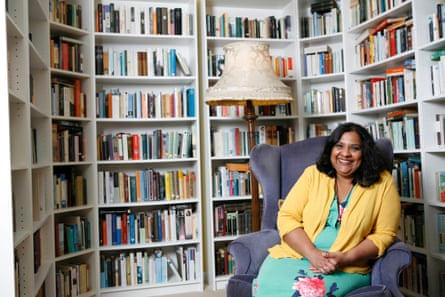
Shash Trevett’s family fled Sri Lanka in 1987, after a group of Indian soldiers stormed their house one night and lined up Trevett, then 13, her mother and grandmother to be shot. “We waited for 12 hours for them to shoot us. They said they’d shoot us after counting to three, then they’d count ‘one, two …’ and then they would laugh or go and do something,” says Trevett.
Now 41, she says this attack was the culmination of a campaign of abuse perpetrated against her family by Indian soldiers, who targeted them under the mistaken belief that their family home was a Tamil Tiger base.
Trevett and her mother fled to Colombo, hoping to be granted exit visas by the high commission to leave the country and join Trevett’s father in Jersey, where he was working as a surgeon. They cycled most of the way to the capital, Trevett fearing she would be shot at every checkpoint. Three months later, Trevett and her mother were on a plane to Britain.
“I remember flying into London and, as we were landing, I finally felt safe. I thought, right, we’re safe now and nothing bad can happen,” says Trevett. But she arrived in Jersey deeply traumatised and stopped speaking for six months. Since that time, she hasn’t spoken a word of Tamil. My parents just wanted me to forget, so they handled it badly, and my school had no idea I’d been through a war.”
Trevett left Jersey in 1993 and moved to York, where she still lives. While at university she met her now husband, a history teacher, and they have two young children – a daughter aged eight and a son, 11. While doing a PhD, Trevett had a breakdown, caused by the trauma she suffered during the conflict in Sri Lanka, which led to years of agoraphobia and anxiety. With her husband’s support she is recovering and has started writing poetry.
“You feel such pressure to make something of your life if you’re a refugee. Sometimes it’s all right for you not to make a celebrated success of your life, it’s all right to just survive. All these people leave their homes and they face so many perils and heartache and they survive, and I think they should be celebrated for that.”
1990s: Emina Hadziosmanovic from Bosnia
‘The community was welcoming’
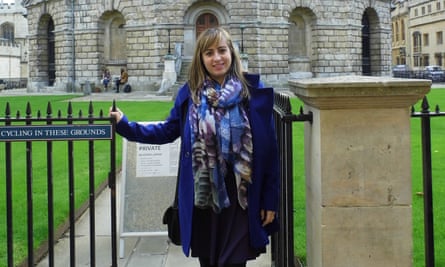
When war broke out in Bosnia in 1992, Emina Hadziosmanovic was four. The war meant that her sister, who was not yet a year old, was not able to get the specialist medical treatment she needed. For this reason, the family were evacuated to Croatia. Hadziosmanovic’s father, who was in the army and wanted to fight for his country, stayed in Bosnia, finally joining the family 10 years later. Hadziosmanovic, her mother, sister and grandmother spent six months in Croatia as refugees before they got the opportunity to move the UK.
Hadziosmanovic, 28, says her family’s reception was mixed. “Charity organisations like the Red Cross would take us out on trips and invite us to parties for Christmas and Easter. In that sense, the community was very welcoming. It wasn’t until my later years of primary school that I saw some hostility from children at school. There was a lack of understanding. I’m from Bosnia and I’m white, but I’d have people saying: ‘Go back to Pakistan.’”
After school, she studied psychology, developing an interest in trauma in the context of war and conflict. She did a master’s at Oxford and a PhD at Nottingham, and is motivated largely by her experience as a young refugee. “I think it has affected to a huge extent my passion for psychology and understanding why conflict happens. As a child you have so many questions that your parents can’t answer.”
2000s: Fabian and Fortunate Frizell from Zimbabwe
‘We are profoundly British’

Fabian Frizell and his twin sister Fortunate Frizell, both 25, fled their home in Zimbabwe on their mother and stepfather’s wedding day. Their parents had been receiving threats for a while – due to their stepfather’s political involvement and mother’s activism in education and women’s rights – but on the day of the wedding it became clear these threats were serious. Trucks full of men with guns and knives began driving by their house. The family of four left the house during the wedding reception, taking just their passports, and hid in the mountains. Their house was destroyed and their bank accounts cleared out.
After a month of living with a friend in a remote area, being followed each time they left the house, they decided to leave the country. Fabian and Fortunate’s stepfather is South African and had a British passport. He went ahead to England, in the hope that they would be able to join him there later. When Fortunate and Fabian arrived, aged 10, at Gatwick with their mother, they were taken off and quizzed about whether their mother was really their mother, and whether she and their stepfather had a genuine relationship. But mostly the twins remember that the immigration officials offered them Kit-Kats. “They kept lining up Kit-Kats on the table and I was just focused on eating the chocolates,” says Fortunate. “And we didn’t get into trouble, because we just told them the truth.”
The family settled in Canterbury. Fabian says he and his sister are “Kent garden England people”, although he adds that they did encounter some hostility as the “only black family for 10 miles”.
The twins describe themselves as “profoundly British”, citing a childhood in colonial Zimbabwe where they learned the history of the royal family and watched Keeping Up Appearances, Blackadder and Mr Bean.
“You know everything,” adds Fabian. “My mother passed her British citizenship test, she got 100%, she didn’t need to revise, she was like: ‘I know this stuff’.”
Both twins did well at school and studied PPS at Cambridge University. They have just graduated and are on their gap years. They are currently living in London and both think that they might like to one day go into politics, and are planning to set up a social enterprise, founding self-sustaining schools in Zimbabwe.
Both are worried about the tone of the discourse around refugees and immigration in the UK, citing the Brexit debate and Nigel Farage’s Breaking Point billboard.
“Real social grievances are being misdirected into the immigration issue. There are real social problems, but instead of solving them, they’ll say, ‘Oh, it’s because of high immigration,’” says Fortunate.
2010s: Ahmad from Syria
‘No one wants to be a refugee’
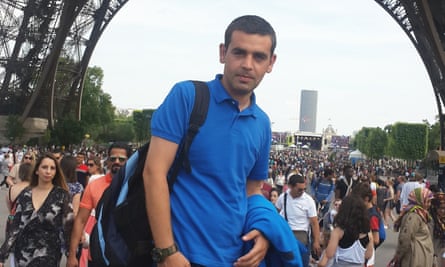
Ahmad arrived in the UK in July 2015, one of a large number of Syrians who made the journey across to Europe in the summer last year. The 26-year-old did not want to leave his homeland, where, before the war, he had a good life. He is married, with two young children, and was studying English literature. “I had just a normal life. I had friends, I liked music, football, cinema,” he says.
Ahmad is a Syrian Kurd, so was targeted by both the Syrian government and the opposition. He discovered he was on a government hit list and after attacks on his town, in which some young men were rounded up, imprisoned and beheaded, he decided to leave the country, fearing he would be next. “No one wants to be a refugee, it’s not something that you choose. In my case, you wake up and find yourself in the situation,” he says.
Ahmad left his wife and children in Syria, not wanting to risk their lives on the boat journey from Turkey to Europe, and hoped he could secure refugee status in the UK and then bring them over to join him.
“Before I made this journey [my wife and I] agreed, we are dead anyway – either through the knives or the extremists or drowning. For me, it was impossible to see my family sink in the sea in front of my eyes. I have a friend who had his five children and wife drown in the sea [while crossing the Mediterranean].”
Ahmad travelled from Syria to Turkey, then crossed the Mediterranean on an overburdened, leaky boat, and arrived in Kos in May 2015. From there, a smuggler he met through Facebook arranged a fake passport and he flew from Athens to Marseilles. He travelled to Calais, and spent two weeks at the camp trying to get to Britain. At one point a smuggler got him and six other people into a flour tanker and promised they would be in London by dinnertime. After 10 hours, the men, fearing suffocation, began banging on the truck, when the driver let them out they were in Italy – the truck had been going the wrong way. Eventually, after three days in the back of a lorry, he arrived in the UK in July 2015. Ahmad was granted refugee status four months later. Four months after that, his wife and children were able to join him.
“I always wanted to go to the UK. The first reason was that I spoke some English. But the main reason is the family reunion system in the UK is super quick, the fastest in Europe. After a while I was able to get my family out of Syria, which might take two or three years in Sweden or Denmark or Germany, which means I could lose my family at any moment.”
Since arriving in Britain, Ahmad says the reception has been mixed. He has been made more fearful of hatred and abuse since the EU referendum, and for this reason asked for his surname not to be used. But he has also encountered great generosity. After he was granted refugee status and so forced to leave his government-supplied accommodation, a family took him into their home and let him live with them for five months. Later, when his wife joined him, a landlord let him live in a flat she owned for free until he was able to earn enough to start paying rent.
Ahmad has settled in London and now works as a campaigner, advising on the refugee crisis and travelling around the country raising the profile of refugees. He has also been offered a scholarship at the University of London to do a master’s in conflict and development, a degree he hopes will help him when he eventually returns to Syria.
“I want to get a degree in this country,” he says. “But I plan to go back to the Middle East to help rebuild the nations.”
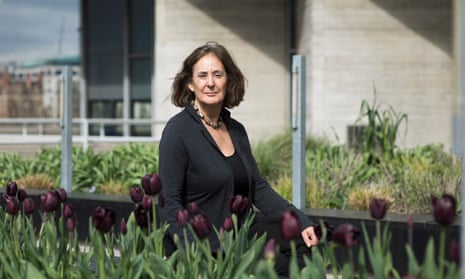
Comments (…)
Sign in or create your Guardian account to join the discussion